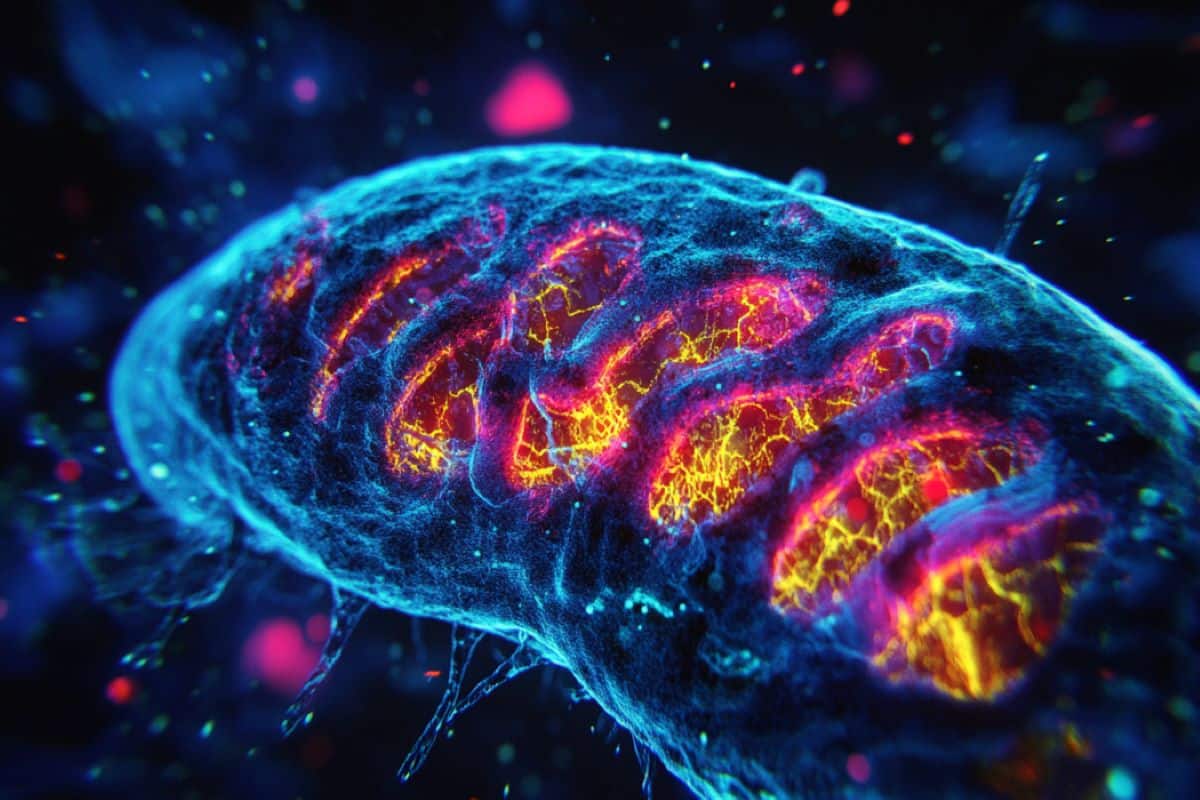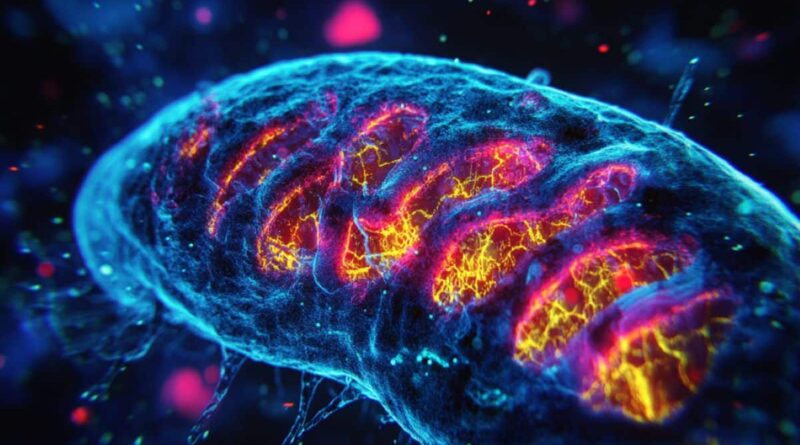Mitochondrial Gene Editing Reveals Memory Links – Neuroscience News
Summary: Researchers have used mitochondrial gene editing to model genetic disorders in mice, revealing profound effects on brain function, metabolism and thermoregulation. They used a special DNA editing tool to mutate the ND5 mitochondrial gene, disrupting energy production and causing learning deficits, hippocampal atrophy and obesity.
The findings provide a powerful framework for examining mitochondrial gene function and developing targeted therapies for mitochondrial diseases. This research may pave the way for treatments that address neurodegenerative conditions and metabolic disorders associated with mitochondrial dysfunction.
Important information:
- Editing of the ND5 mitochondrial gene caused memory deficits, hippocampal atrophy, and obesity in mice.
- Mutant mice were struggling with thermoregulation, linking mitochondrial dysfunction to fat metabolism.
- This study highlights the potential of mitochondrial gene editing to treat human disorders.
Source: Korea University College of Medicine
Mitochondria contain their own DNA (mtDNA), which plays an important role in cellular respiration and energy use. Mutations in mtDNA can lead to serious human diseases. To advance our understanding of mitochondrial genetic disorders, there is a need to create appropriate animal models with targeted mtDNA mutations.
Although previous experiments have been carried out, the profound phenotypic changes caused by knocking out mitochondrial genes, that is, the changes in characteristics that can be observed when a certain gene is inactive, often remain undocumented.

To address this, Korean researchers have used DNA sequencing technology to analyze the genotypic and phenotypic effects of the deletion. ND5 mitochondrial type.
This study led by Dr. Hyunji Lee, Assistant Professor at the Department of Biomedical Sciences Korea University College of Medicine, Republic of Korea, made a foolproof change by changing a single nucleotide, creating a premature stop codon in mice. This mutation disrupts protein synthesis, producing a small, often inactive protein and effectively causing a loss of function.
Their study appeared online on November 1, 2024 in the journal Experimental and Molecular Medicine.
When emphasizing the importance of this success, the main secretary Prof. Lee explains, “MtDNA is difficult to access with editing tools such as Cas9, limiting studies of mitochondrial genetic diseases.
“Therefore, we used a DddA-derived cytosine base editor (DdCBE), which changes cytosine─guanine base pairs to thymine─adenosine pairs to generate mutant heteroplasmic mitochondria.”
Loss of ND5 gene activity resulted in reduced multiprotein complex I expression and ATP levels. Significant changes in mitochondrial cristae were observed in the cerebral cortex of these mice, accompanied by hippocampal atrophy and asymmetry.
As a result, behavioral tests revealed marked learning and memory deficits, as indicated by slowness of movement and inability to perceive fear.
Since mitochondria are involved in metabolic problems, researchers conducted metabolic experiments. They observed that the mutant mice were susceptible to obesity and thermogenetic problems, revealing a link between mitochondrial function and fat metabolism.
The ND5 The mutant mice had difficulty regulating their body temperature when exposed to cold, indicating impaired thermoregulation.
The successful development of an animal model with a mitochondrial gene mutation is an achievement that promises a better understanding of the function of other mitochondrial types.
Prof. Lee emphasized the clinical potential of this study “It’s like the first gene-editing technology-based therapy that received FDA approval last year, I would like to see the approval of mitochondrial gene-editing technology-based therapy for mitochondrial genetic diseases.
“Mitochondria-targeted therapy will be particularly beneficial for patients with mitochondrial genetic disease, which affects approximately 1 in 5,000 people worldwide.”
Future research into new treatments targeting mitochondrial function in humans will impact the way doctors deal with common health issues like obesity and neurodegenerative diseases like Parkinson’s and Alzheimer’s. .
This study heralds a hopeful future for the millions of people affected by mitochondrial disorders.
About this research issues of genetics and memory
Author: Soo-Jin Jeon
Source: Korea University College of Medicine
Contact: Soo-Jin Jeon – Korea University College of Medicine
Image: Image credited to Neuroscience News
Basic research: Open access.
“Comprehensive phenotypic analysis of nonsense mutations in mitochondrial ND5 in mice” by Hyunji Lee et al. Experimental and Molecular Medicine
Summary
Comprehensive phenotypic analysis of nonsense mutations in mitochondrial ND5 in mice.
Mitochondrial dysfunction caused by mitochondrial DNA (mtDNA) mutations has been implicated in various human diseases. A comprehensive analysis of mitochondrial genetic disorders requires appropriate animal models for human disease studies.
While knocking out genes with premature stop codons is a powerful way to investigate specific functions of genes, until now mtDNA knocking has been rare.
Here, we report the genotypes and phenotypes of heteroplasmic MT-ND5 gene-knockout mice.
These mutant mice developed damaged mitochondrial cristae in the cerebral cortex, hippocampal atrophy, and asymmetry, leading to learning and memory abnormalities. Furthermore, mutant mice are more susceptible to obesity and thermogenetic disorders.
We propose that these mtDNA gene-knockdown mice may serve as important animal models for studying the MT-ND5 gene and developing treatments for human mitochondrial disorders in the future.
#Mitochondrial #Gene #Editing #Reveals #Memory #Links #Neuroscience #News
